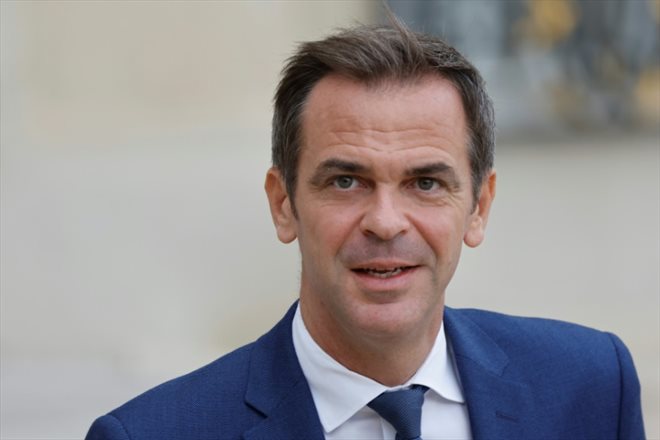Government spokesperson Olivier Véran at the Elysée, September 13, 2023 (AFP/Archives/Ludovic MARIN)
Prime Minister Elisabeth Borne announced to Le Parisien Dimanche that distributors would be authorized to sell fuels “at a loss” for a few months. An exceptional measure with uncertain effects, which lifts a 60-year-old taboo.
According to the office of Olivier Véran, government spokesperson, this provision “will be included in the bill” advancing commercial negotiations between supermarkets and their agro-industry suppliers which must be “presented at the beginning of October” by the government.
The Minister of Energy Transition Agnès Pannier-Runacher specified on Sunday evening on BFM that she was counting on a vote “during November” on this measure which should give “an additional degree of action” to fuel distributors.
. What does the law say today?
Resale at a loss has been prohibited in France since 1963. Merchants cannot “resell or announce the resale of a product as is below its actual purchase price”, explains Fraud Repression on its website ( DGCCRF).
In 2018, the third French food distributor, Intermarché, was forced to pay a transactional fine of 375,000 euros – the maximum amount incurred for reselling at a loss – for having marketed Nutella at a very discounted price. The promotional operation had led to scenes of jostling and fights which had left their mark.
The DGCCRF lists a few exceptions: cessation or change of commercial activity, end of seasons – during winter or summer sales -, “technical obsolescence or out-of-fashion products”, or even if the products are “threatened with rapid deterioration “.
. Why such a ban?
Originally, the ban was to protect more fragile professionals from any threat of “dumping”: the risk was that larger and more solid businesses would sustain losses while their more fragile competitors, exhausted by the cut prices, disappeared. , then leaving them free to practice the pricing policies of their choice.
In 2012, Emmanuel Combe, who was then vice-president of the French Competition Authority, also explained on the Atlantico site that reselling at a loss could only be a “trompe l’oeil” reduction, with the retailer compensating for the selling at a loss on one product while increasing its margin on others. The benefit of the operation for the consumer would thus be canceled.
. What consequences for the little ones?
The man who is today a university professor at Paris 1 Panthéon-Sorbonne, affiliated professor at Skema Business School and consultant for the Image 7 communications agency, nevertheless believed that these pitfalls were “fairly irrelevant” regarding fuel, particularly because that most independent gas stations have disappeared.
Francis Pousse, president of the Mobilians professional union representing 5,800 service stations excluding supermarkets, however expressed his indignation to AFP, reacting to Elisabeth Borne’s announcement. “My members live on 40, 50% or even more from the sale of fuel, so if they sell at a loss, I give them three months.”
He also said he was “skeptical” about the beneficial effect of this measure on purchasing power, because if the prices of suppliers to large stores continue to increase, the latter will “not be able to afford to lose 15 cents on every liter of gasoline.
. Can the measure lower prices?
Many distributors have carried out fuel sales operations at cost price in recent months. But the sector generally makes gasoline and diesel a loss leader, taking only small margins from their distribution. In this context, the cost price only slightly reduces the price charged to the customer at the end of the chain.
According to Sylvain Bersinger, chief economist of the Asterès firm, “deep causes” explain the rise in fuel prices, such as the rise in the price of a barrel and the slight depreciation of the euro compared to the dollar “which has increased the price of oil “.
For him, selling at a loss “could generate perverse effects”. He therefore instead recommends “targeted aid to households most impacted by the increase in fuel prices”.
With an authorized sale at a loss, Emmanuel Combe considered in 2012 that it was entirely possible to imagine “aggressive, temporary and local price reduction strategies on the part of certain distributors”, which could have real consequences on the price invoiced to the customer. At the risk perhaps of seeing the same scenes reproduce as when Intermarché slashed the price of Nutella.
© 2023 AFP
Did you like this article ? Share it with your friends using the buttons below.




